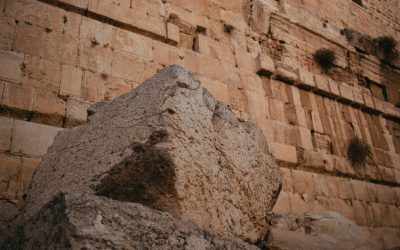It may make someone uncomfortable to say that a Christian is called to radical holiness. The shock would probably come when thinking of the modern sense of “radical” as some zealot on the fringe. It’s easy to interpret “radical holiness” as something strange and extreme, but nothing is further from the truth.
Radical comes from the Latin “radix,” for “root.” Something is “radical” because it touches the roots and impacts the most fundamental part of a thing.
Holiness is radical because it touches OUR roots. It goes to the deepest parts of who we are. God’s grace and presence in our lives isn’t something superficial we reserve just for Sundays. Radical holiness touches our dreams, our personality, the way we make decisions. It becomes fundamental to who we are as a person. At our core, our very lives belong to God, and His grace touches every aspect.
At the same time, it’s crucially important to recognize that this is an organic development. Holiness is not generic or the same for everyone, so no saint is like another. Holiness in your life is simply being who God made you to be. But it’s the REAL you. It’s not some fake version of you that’s supposed to pretend to be happy all the time or pretend to be a person you’re not.
Of course, any growth happens slowly over time and requires the right conditions. We can’t force ourselves to be holy any more than the farmer can make his crop grow faster. All we can do is prepare the environment and ask God to do His work in us. We also have to acknowledge that organic growth is un predictable: each person’s story of becoming a saint is unique, full of twists and turns. In the messiness of humanity growth never happens perfectly, and there is no straight path to holiness.
This rediscovery of the sainthood hidden within us is a rediscovery of our roots as a return to our origin. Holiness was God’s original design and plan for us from the beginning. To discover our roots is to discover who we were originally meant to be, and to connect with the entire history of salvation. How incredible that our individual story is rooted in the history of the Church, which is rooted in God’s action in the people of Israel, which is rooted in God’s original relationship with humanity at creation!
Accepting this truth about who we really are and who we are called to be is, in fact, authentic humility. We do not pretend to be anything other than ourselves. The word itself, “humility” comes from the Latin word for dirt, “humus.” Radical holiness is a vision of ourselves rooted deeply in humility. The deeper and stronger the roots, the stronger the tree. And it is there, deep in humility, where God is found and holiness becomes vital and life-giving, because it is nothing else than His very presence deep in our soul.
Just like an acorn that has everything in it to become a mighty oak tree, contained in each of us is the potential to be the saint God has called us to be. That is the secret to radical holiness: it’s already present within us. All we have to do is help it grow. As Jacques Fesch wrote, “May He let you see that within your soul a saint is sleeping… you are called to holiness, like me, like everyone. Don’t forget.”
“…you know the time; it is the hour now for you to awake from sleep. For our salvation is nearer now than when we first believed.” Romans 13:11


